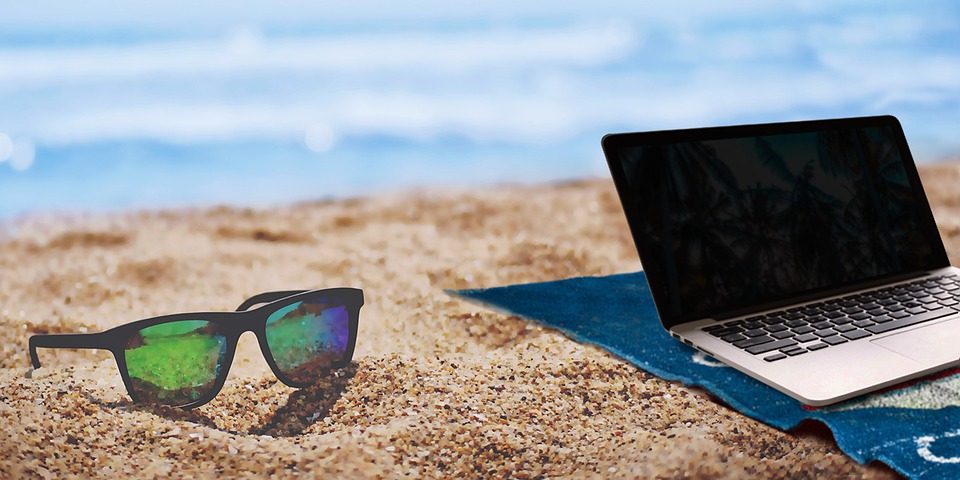
(TAN): COVID-19 has modified our lifestyles to a large extent, from how we work and socialise to how we shop, entertain ourselves or travel.
Businesses that could be run from remote locations had sent workers home after the pandemic struck. Work-related travel too came to a grinding halt as international flight operations were suspended and restrictions on movement were put in place all over the world. As a result, people were left with no choice but to adapt to working from home for the long term, while hopping continents for work was soon replaced by Zoom meetings.
However, after two months of remote work, many of these companies seem to be in no rush to bring their staff back to office. They have probably realised that employees can continue to be equally productive, if not more, if they have to commute less on a daily basis and can choose their location of work – this flexibility brings a sense of fundamental freedom and reduces stress leading to a more relaxed work-life balance. It can be empowering too – people will get time to pursue their interests if they have more time on hand. They will be able to travel more, and for a longer stretch at a time, if they know they can work from anywhere, be it a beach, a café or a friend’s house halfway around the world, without having to wait for their leaves to get approved.
While many businesses the world over are still weighing their options to continue with the trend, there are plenty others that have already taken a call on that front. American microblogging and social networking platform Twitter recently announced it will allow its staff to work from home “forever” if they want, as per reports. The company’s Chief Executive Officer Jack Dorsey had, in fact, announced earlier this year, when the pandemic was still not much of a hazard, that they were considering the move, reports said.
“We were uniquely positioned to respond quickly and allow folks to work from home given our emphasis on decentralization and supporting a distributed workforce capable of working from anywhere. The past few months have proven we can make that work. So if our employees are in a role and situation that enables them to work from home and they want to continue to do so forever, we will make that happen,” the company said in a blogpost.
Another San Francisco, California-based company Square reportedly said it will let employees that are able to do their jobs remotely work work from home even after the COVID-19 shelter-in-place orders are lifted.
“We want employees to be able to work where they feel most creative and productive. Moving forward, Squares will be able to work from home permanently, even once offices begin to reopen. Over the past several weeks, we’ve learned a lot about what it takes for people to effectively perform roles outside of an office, and we will continue to learn as we go,” a spokesperson from the American mobile payments major was quoted by The Verge as saying.
As people start travelling with the twin intentions of work and exploration in the post-COVID times, sectors related to the tourism industry would stand to benefit after all. With location of work becoming secondary, travellers would book their accommodations for a longer period, translating to a better business opportunity for all tiers of hotels, bed and breakfasts and resorts.
Businesses such as global home-sharing platform Airbnb, already a household name among tourists, could thrive with the growing demand. Earlier this month, the California-based company had to let go of 1,900 employees, constituting nearly a quarter of its workforce, as uncertainties over global travel demand grew in the wake of the pandemic.
[ALSO READ: India extends ban on all passenger flight operations until at least the end of May]
Airbnb’s Chief Executive Officer and Co-Founder, Brian Chesky said the company had arrived at the decision after its 2020 revenue was predicted to be less than half of what it was in 2019. Although the company had raised USD 2 billion in capital and cut costs to tackle the situation, it needed to take that further measure.
Luxury hotels and resorts could be in demand too, with travellers from high-income groups choosing upscale accommodations during their time away from home. Major hotel players could not make profits during the first three months of 2020 amid the outbreak – Marriott’s RevPAR declined 22.5% worldwide while that of InterContinental Hotels Group’s dipped nearly 25%.
While the pandemic wreaked havoc in the lives of countries and individuals across the planet, it also presented a rare opportunity for us to rethink on many levels. Instead of going back to normal, it urged us to find and adapt to a new normal. The crisis has shown that one size after all does not fit all, that it should really be up to the individual to determine what size they want to opt for. Travel, like food and religion, is a matter of personal choice, and if one can be professional enough to combine work with pleasure, then there should not ideally be anything holding them back, least of all their bosses.




